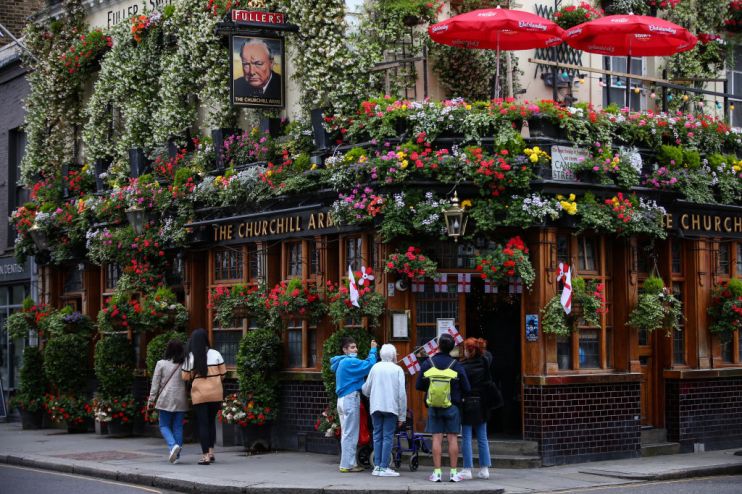The slow decline of British pubs is pulling apart our social fabric

On top of the decline of libraries and community spaces, the dwindling number of pubs is another loss for the ‘third space’, writes Phoebe Arslanagic-Little.
My favourite London restaurant is Harar in Vauxhall. I go there extremely often. Some say too often. Once, having been away travelling for three months, the staff greeted me with dramatic relief. There had been speculation in the kitchen that I must be dead.
Harar’s location is not particularly convenient and not all my friends – fools – enjoy the Ethiopian food it serves. But I go so often because, above even the delicious menu and low prices, the best thing about Harar is that it permits loitering. It is somewhere to sit with friends for many hours, unhurried by waiters, and talk and laugh. In short, Harar is my ‘third place’. Third places are public spaces, neither home nor work, that are conducive to social encounters and friendly to idlers.
England’s most traditional third place is undeniably the pub. But as everyone knows, pubs are bleeding away at a fearsome rate. Last month, the number of pubs and bars in the UK fell below 100,000 first time in decades. This is in part due to the cost of a pint and the ease with which beer can be found in supermarkets at lower prices. Young people, squeezed by rents, stagnant wage growth, the battle to save for a deposit, and the cost of living crisis, are understandably chary of spending £5.90 per pint to sit on a hard bench in a gloomy room that smells like pre-smoking ban Britain.
Pubs aren’t the only type of third place being winnowed away from the landscape. When the term was coined by the sociologist Ray Oldenburg in 1989, he also mentioned churches, community centres and libraries, the numbers and attendance of all of which are threatened in Britain today.
Oldenburg specified that third places are by nature unpretentious. Spaces where conversation is a primary activity, where there are regulars who help to create and maintain a consistent tone, free of social hierarchy. We can see how such places, functioning as they should, reinforce individuals’ sense of belonging to a community and act as useful, informal hubs in all sorts of ways.
Alongside third spaces, the general ability to open one’s home to friends and play host has also declined. Cities are full of young people and couples forced by high rents to house share with strangers far beyond the laidback university days, when a housemate who only washed up once a month was a charming scamp rather than a cold-eyed menace to public health. Many of my friends also rent in houses or flats where the living room has been turned into a bedroom, or where there is no table at all, but an ungenerous ‘breakfast bar’ that seats only two people on uncomfortable stools.
With so many people prevented by living arrangements from having friends over and restricted by availability or cost from the warmth of third places, can this be part of the reason that those aged 16-29 are the most likely to report loneliness?
A desire to do our bit is why, when my husband and I moved into our flat, the first thing we did was get a table that seats ten. We may not have space for a sofa, but at least we can joyfully throw open our door to a procession of friends.
As satisfying as it is to gather and laugh over drinks and food in good company, ten people do generate a remarkable amount of washing up. And inevitably, as I dry the final few things, my mind wanders. I hear the merry strains of the Ethiopian music playlist that I have heard through a hundred times over. I long to be snug in my third place, scooping up curried chickpeas from a plate that I won’t be responsible for cleaning later, and I grieve for those that don’t have such a place to call not-home.